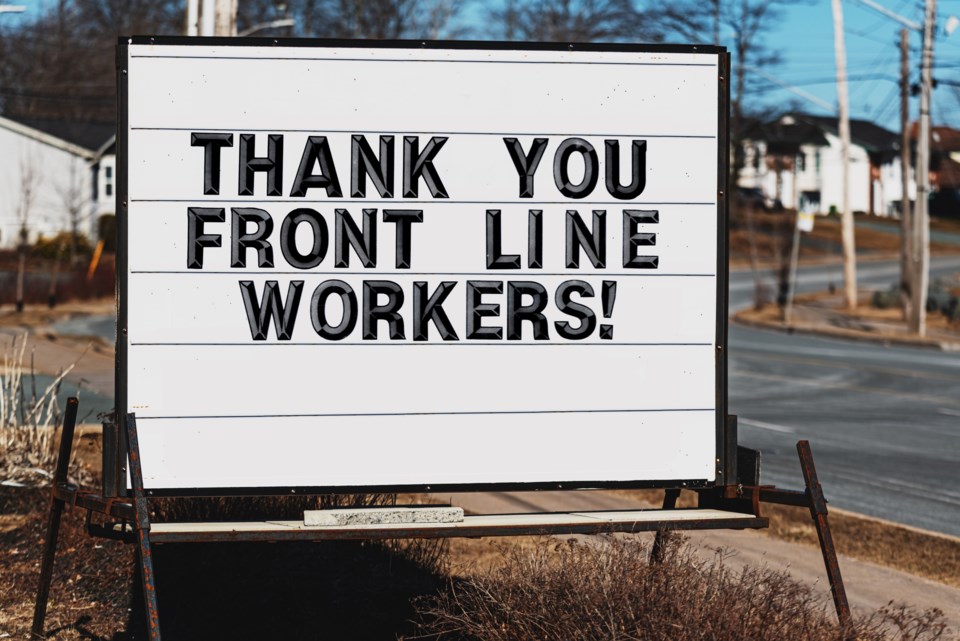As a record-breaking snowstorm blanketed most of southern Ontario mid-January, , it was heartwarming to see stories of , and Ontario — which he was .
Many saw these acts as the epitome of , reminiscent of the that started as a in March 2020. Caremongering was a community-led social movement to help seniors and those at risk during the pandemic.
The caremongering movement quickly spread and the with over .
As a professor that researches community resilience after disasters, I have been a caremongering pessimist, or simply put — a hater. In April 2020, I warned that and in April 2021 I noted with anger All of these heartwarming stories of neighbourly support and community care made me think … was I wrong? Has a snowstorm brought back our made-in-Canada caremongering spirit?
The short answer, no.
Our short lived caremongering movement
Disasters provide an opportunity to examine the “exception” in order to better understand “the rule,” as exceptional circumstances tend to expose the social structures and processes that are often hidden.
In other words, as political theorist Steven Lukes puts it, “”. Lukes argues that disasters can be “transformative or confirmatory,” they can generate new ways of thinking or reinforce prevailing structures of power.
Sadly, in Canada, COVID-19 has been confirmatory, and what’s behind the veil is not pretty. As Toronto Star columnist Shree Paradkar put succinctly, COVID-19 showed “”.
We see this reflected in and society and we see it in our short lived caremongering movement.
A look at the database of caremongering Facebook groups I collected in March 2020 tells me that most of those groups no longer exist.
The same can be said for Canada’s “,” the , and .
In fact, a year and a half into the pandemic, a left health care workers suffering inside and hospitals.
And it could get worse.
The inequality virus
Anthropologist has found that after the immediate danger of a disaster passes, social divisions and inequalities return — often stronger.
COVID-19 has already been called the “.” Economist Zara Liaqat predicts that “.”
This increasing inequality should be a cause for concern.
The and its subsequent COVID-19 restrictions and lockdowns have most people believing that .
According to a survey conducted from January 10 to 13 with a representative sample of 1,519 Canadians who are members of the the Angus Reid Forum (this survey is not publicly available), 71 per cent of Canadians believe contracting COVID-19 is inevitable and 40 per cent agree that “at this point, I would rather get COVID-19 and just move on with my life.”
This high level of fatalism comes after the post-holiday surge where . This feeling of despair after hearing these stories is only exacerbated by the Ontario government’s , and .
But this type of Omnicron fatalism or belief in Omnicron inevitability can be dangerous, as those who believe contracting the virus is inevitable will also desire for the removal of all public health restrictions.
Embracing the inevitable
Data from the Angus Reid Institute published on Jan. 13 found that half of those who feel they will be infected with Omicron no matter what they do think that .
Public health physician and epidemiologist Dr. Cory Neudorf explained why . He says that while your COVID-19 symptoms may be mild, it may not be mild for the person you spread it to.
He added that a surge in cases can lead to , and higher deaths rates due to other health issues not being treated.
After Doug Ford announced “,” I think about the widening inequality in our province, who the news is “positive” for and the death of caremongering.
![]()
Yvonne Su does not work for, consult, own shares in or receive funding from any company or organisation that would benefit from this article, and has disclosed no relevant affiliations beyond their academic appointment.




